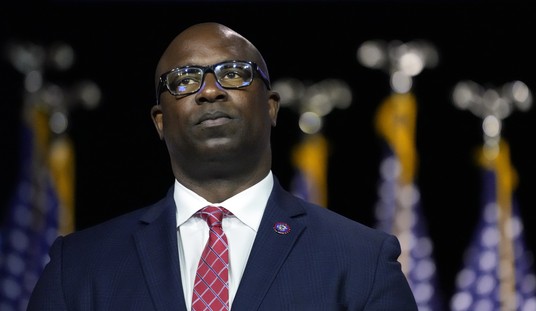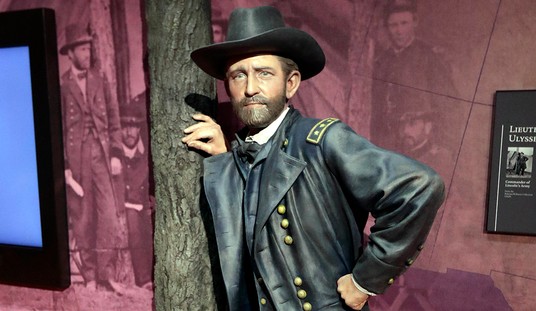Truth and revolution can appear suddenly, and darken the brightest of times.
Consider yesterday’s Department of Justice inspector general’s report documenting the rancid racialist attitudes of the Voting Section staff. (See: “Inspector General Report of Racialist Dysfunction Inside DOJ.”)
The Justice Department should hope that Justice Antonin Scalia — or his clerks — don’t catch wind of the IG report before Shelby v. Holder is decided. If he or they do, they will find a particularly interesting discussion regarding what Justice Scalia called “racial entitlements” in Section 5 of the Voting Rights Act.
The left has been apoplectic about Scalia’s observation. But yesterday’s DOJ inspector general’s report makes plain: many staff inside the Justice Department define Section 5 exactly as Scalia does: as a “racial entitlement.”
In the report, Assistant Attorney General Tom Perez — a possible Obama nominee to head the Department of Labor — makes clear that he doesn’t think Section 5 should ever be used to protect a white minority in covered jurisdictions.
Perez feels it should only be used to prop up the political position of “people of color.” If the victims of discrimination happen to be white, too bad — they are not protected.
Put aside for a moment that this is precisely the sort of attitude and exactly the type of policy about which I testified under oath in 2010. Even some wayward conservatives joined the howls on the Left when I exposed this deplorable law-enforcement philosophy. Thanks to Tom Perez’s unapologetic leftist candor, we now know with absolute clarity the truth about the current DOJ — and the truth is ugly.
From the report (pp. 90-91):
Perez also told the OIG that he believed interpreting the retrogressive-effect prong of the analysis to cover White citizens would be inconsistent with the history of and intent behind Section 5, which he stated was enacted to remedy the specific problem of discrimination against racial minorities. In his February 2011 letter, Perez noted that the Division has always understood the term “minority” to mean not numerical minority, but rather “an identifiable and specially disadvantaged group.”
Pay close attention to Perez’s use of “disadvantaged group.” This qualifier is familiar language to critical-race theorists. It evidences a view that even a small white minority is never worthy of protection, even if discriminated against, because ultimately whites are members of a privileged group. Also, people of color are always part of a “disadvantaged group.”
Privilege and disadvantage are not prerequisites to equal protection of the law.
Yet DOJ Voting Section lawyers employed Perez’s logic to argue against helping white victims of discrimination in Macon, Mississippi, saying:
Until blacks were socio-economically equal to whites in Mississippi (read: statistically) then whites should not be protected under the Voting Rights Act.
What should trouble the justices on the Supreme Court deciding Shelby is that Scalia’s fears reflect the plain enforcement policy of the Justice Department unit which enforces Section 5. To Tom Perez, it is axiomatic that Section 5 is a racial entitlement only to people of color. The protections of the law, to him, are not for whites. Section 5 is only to be used to preserve the political power of blacks, Hispanic, and native Americans.
If that isn’t a racial entitlement, I don’t know what is.
Perez employs the doublespeak and prevarication for which he has become famous: he dishonestly infers that the Supreme Court has addressed and decided the matter. Perez writes that the Supreme Court “has consistently recognized that Section 5 was enacted to deal with a particular historical problem of racial discrimination against minorities.” (Pages 90-91 of the report).
Of course the Supreme Court has said Section 5 protects national racial minorities, as it did in 1966 when it first upheld Section 5. But what Perez fails to note is that the question of whether Section 5 protects all Americans, including whites, has never been before the Court.
Perez would have the uninformed reader believe otherwise.
Perez then claims that protecting whites with the Voting Rights Act “would be infeasible as a practical matter, noting that ‘many voting changes … will almost always have some racial effect in some direction.’”
This too is false.
There is a way to accomplish the goal of protecting all Americans with the Voting Rights Act, particularly in jurisdictions like Noxubee County, Mississippi, where a federal court has already found that whites were the victim of voting discrimination. Unfortunately, it will have to wait; the next Republican administration needs to implement these already drafted Section 5 regulations to protect all Americans, assuming Section 5 even exists in 2017.
If Perez is right, and Section 5 really is a racial entitlement to be enjoyed only by “people of color,” perhaps it is time for it to go. In a country becoming increasingly racially diverse, where experience shows that vile race discriminators are no longer confined to only “privileged” whites, a law that only protects some Americans will grow obsolete, then go rancid.
Justice Scalia and the Supreme Court should strike down Section 5 while it is merely obsolete. Our country shouldn’t have to endure Perez’s divisive legal theories in a future and more diverse age when they will ripen into an unwelcome rot.









Join the conversation as a VIP Member